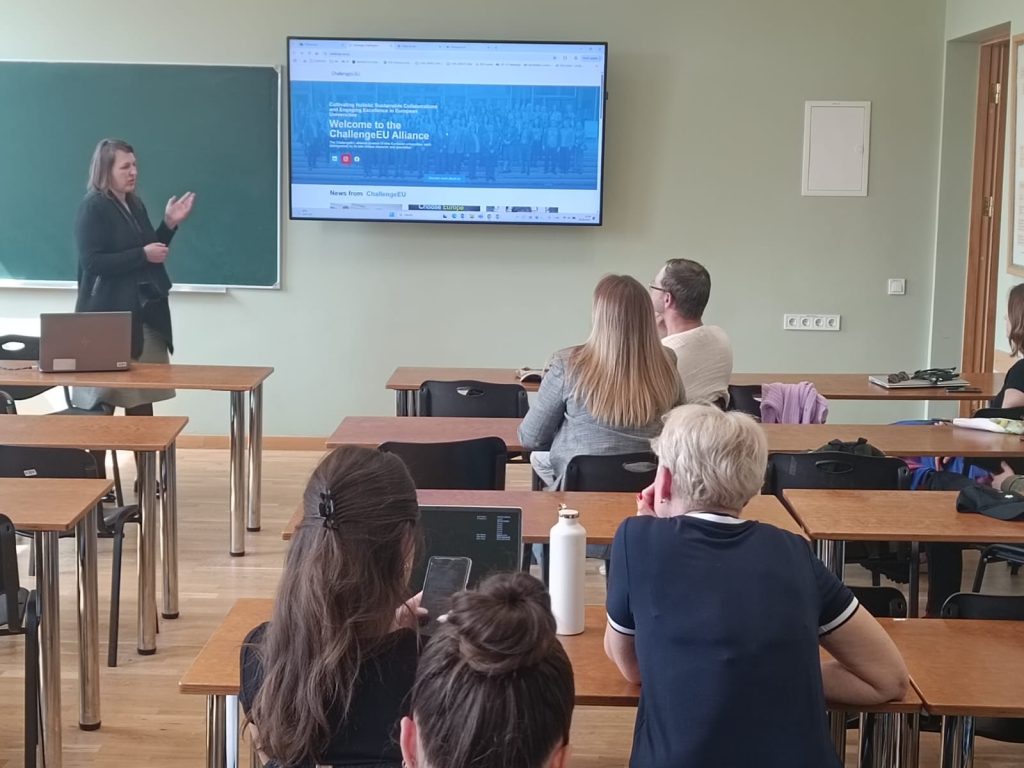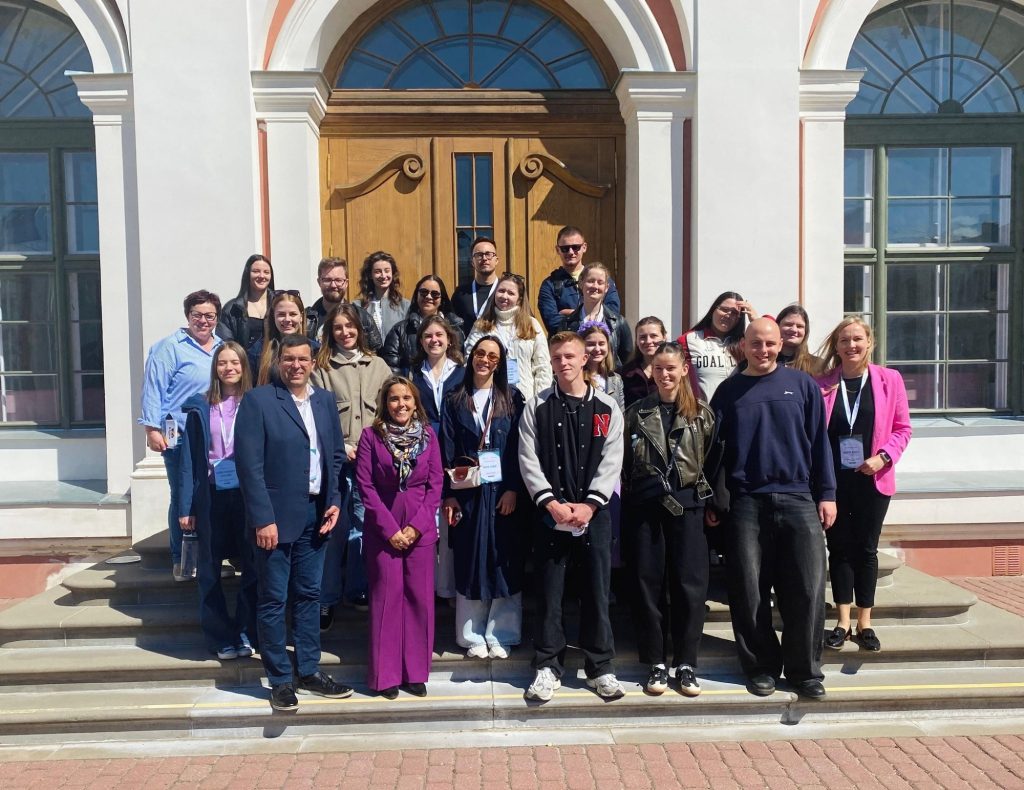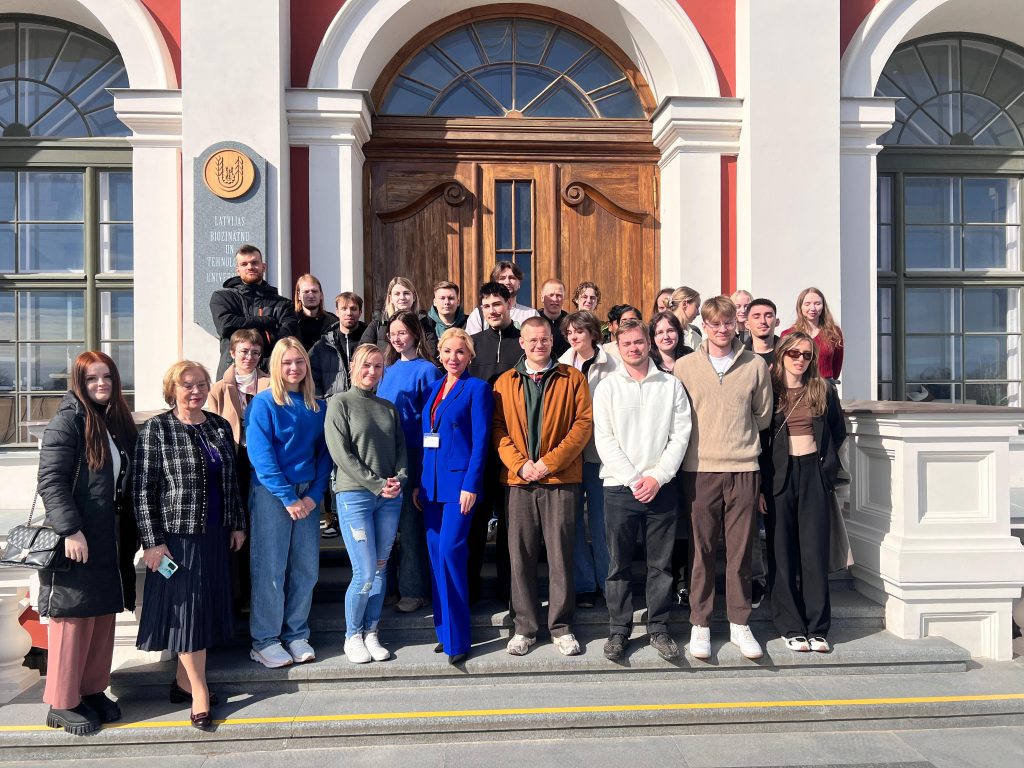Student Voices Shaping the ChallengeEU Talent Academy

In June, the Latvia University of Life Sciences and Technologies (LBTU) became a hub of dialogue and collaboration as staff and students came together for two dynamic focus group discussions organised within the framework of the ChallengeEU project. These meetings marked a key step in ensuring that the voices of students are at the heart of shaping future educational initiatives across the Alliance. The focus groups brought together doctoral and master’s students from a variety of disciplines, creating a safe and open space for them to share their experiences, challenges, and ideas for improvement related to their academic journey. The atmosphere was both reflective and constructive, with participants offering thoughtful feedback on many aspects of university life. What did they talk about?Discussions explored a wide range of topics, including: Each perspective shared during the sessions provided valuable insight into the lived experiences of early-career researchers and postgraduate students. Their suggestions and reflections are already proving to be essential in the development of one of ChallengeEU’s key initiatives — the Talent Academy. Why does it matter? The Talent Academy is being designed to support (early-career) researchers in acquiring both methodological capacities and entrepreneurial skills, enabling them to conduct socially relevant research and translate findings into real-world impact. The feedback collected during these sessions will directly inform its structure and priorities, helping to ensure that it reflects the true needs of students and young researchers. This type of participatory engagement is at the core of ChallengeEU’s values: building inclusive, challenge-driven, and impactful education and research ecosystems. By listening closely to students, the Alliance aims to co-create a more supportive and effective learning environment — one that empowers students to grow, thrive, and reach their full potential. These focus groups are just one of many ongoing efforts to build bridges between universities and their communities, and to ensure that the transformation of higher education in Europe is driven by collaboration, inclusion, and dialogue.
International Experience in Sustainable Gastronomy

From May 13–17, the Latvia University of Life Sciences and Technologies (LBTU) hosted the Erasmus+ Blended Intensive Programme (BIP) course “Sustainable Restaurant Service”, bringing together students and academic staff from Latvia, Croatia, Portugal, Poland, and Bulgaria. This international course was a valuable opportunity to exchange knowledge and best practices in the field of sustainable gastronomy. The event was made even more impactful thanks to the active involvement of ChallengeEU alliance partners – Universidade Europeia and the University of Warmia and Mazury in Olsztyn, whose participation reinforced the spirit of international collaboration and innovation. The course was especially valuable thanks to the participation of the ChallengeEU partners – Universidade Europeia (Portugal) and Uniwersytet Warmińsko-Mazurski w Olsztynie (Poland) – strengthening international cooperation in sustainable gastronomy. Before arriving in Latvia, participants joined virtual sessions to explore sustainability in restaurant operations, AI solutions, and cross-border teamwork. During the on-site week, students explored:Sustainable restaurant managementGastronomic tourism & local cuisineStudy visits to producers & Michelin Guide restaurantsInspiring talks with chefs & hospitality professionals The course concluded with a practical workshop and a festive lunch showcasing sustainable food service. All participants received certificates — and a shared commitment to future collaboration in sustainable gastronomy. The organizers extend their congratulations to all partners, students, and lecturers who contributed to the success of this event.
LBTU hosts programme “Media Literacy for Future Leaders”

The Institute of Social and Humanitarian Sciences of the Faculty of Economics and Social Development (ESAF) at the Latvia University of Life Sciences and Technologies (LBTU) has successfully completed the Erasmus+ Blended Intensive Programme (BIP) project “Media Literacy for Future Leaders”. Among the participants were students and lecturers from ChallengeEU partner universities — Hochschule Offenburg, University of Warmia and Mazury in Olsztyn, and South East European University (SEEU) — joined by representatives of the Estonian University of Life Sciences. The program was led by an international team of lecturers, including five LBTU faculty members from ESAF and guest lecturers – professor Edlira Palloshi Disha from North Macedonia, media science professor Urszula Doliwa, and associate professor Magdalena Szydłowska from Poland. The programme focused on media literacy, critical thinking, and intercultural communication — equipping students with tools to analyze digital content, detect disinformation, and craft meaningful messages. Following an initial online seminar, participants gathered for a vibrant study week in Jelgava, featuring hands-on workshops, cultural visits to Riga and Rundāle Palace, and student presentations during the international conference “Students on Their Way to Science”. It was a great experience, as reflected in the words of one of the participants: “I would like to sincerely thank you for the wonderful experience during the Blended Intensive Programme in Latvia. It was an incredibly enriching opportunity, both academically and personally. I am truly grateful for the chance to participate, to meet inspiring peers, and to learn from outstanding professors. The organization and hospitality throughout the programme were exceptional. I truly appreciate all the efforts that made this an unforgettable experience”. >>> More information



